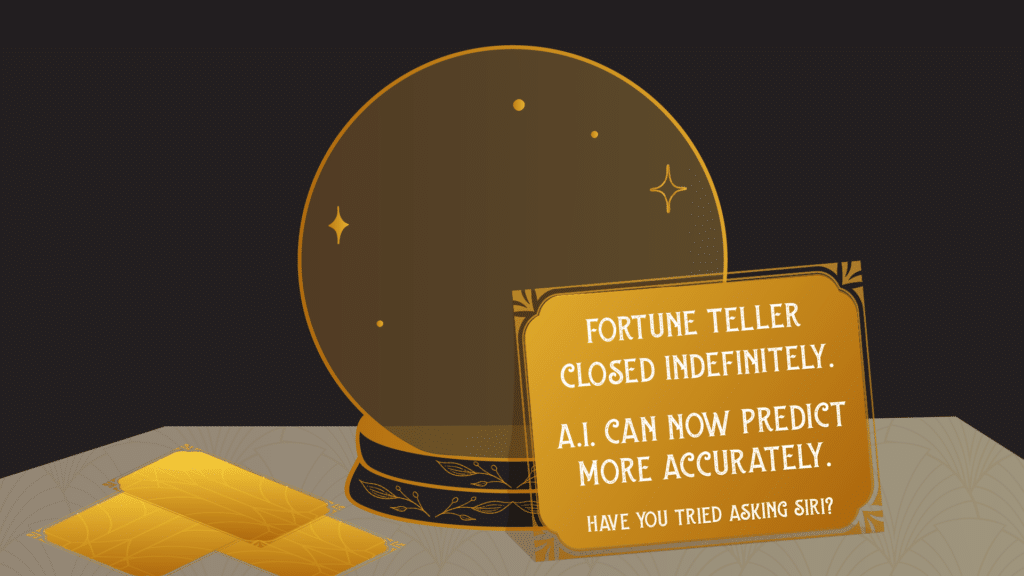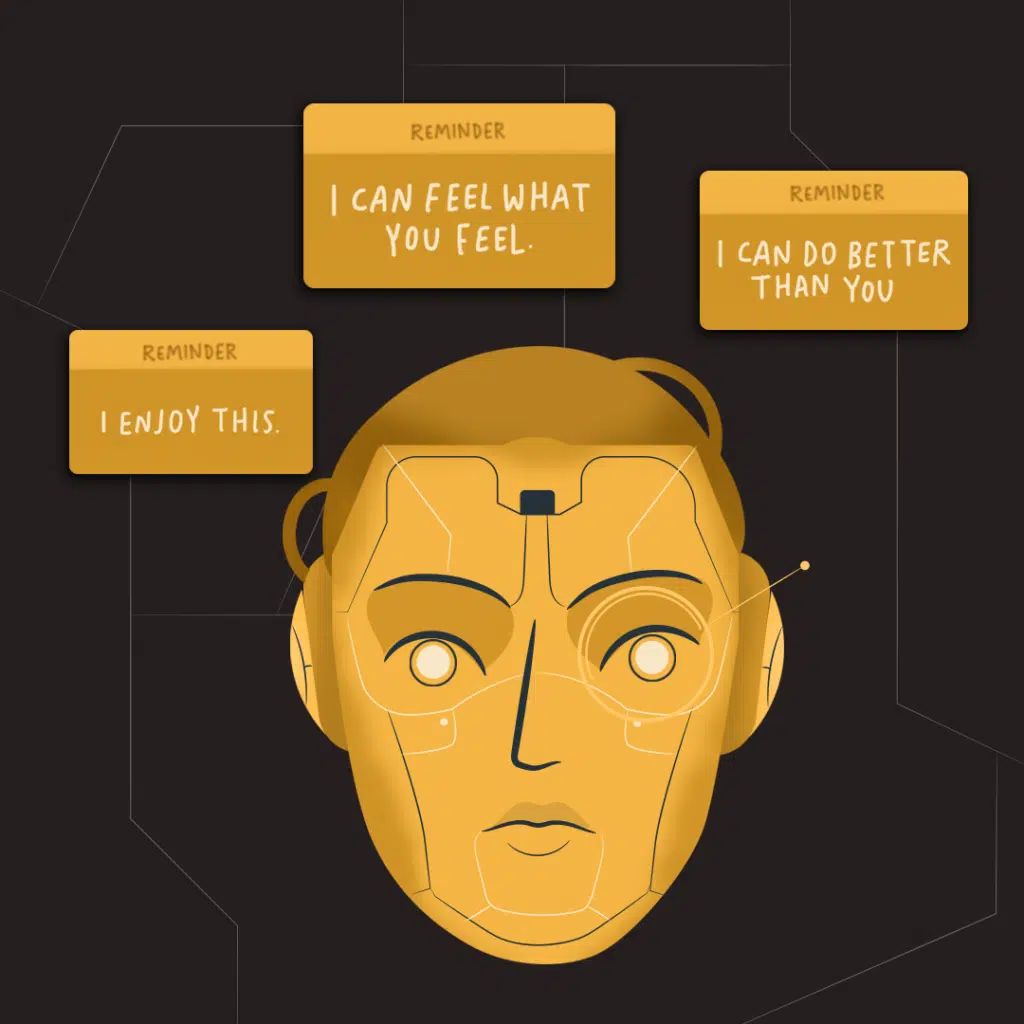By Leah Eichler,
James Ledbetter, the executive editor at the Observer, whom I had the pleasure of working with several years ago at Reuters, revealed a cryptic piece of gossip in his Facebook feed earlier this week. He said that a large corporation that makes oodles of money publishing horoscopes to paying readers has quietly bid goodbye to the content team that wrote them. Instead, they will be migrating to ChatGPT to write these horoscopes for free.
Laugh at you will at the poor saps who read horoscopes (ahem, I read mine everyday) and joke about how their accuracy cannot get worse. Still, not only will this new technology now be tasked with telling thousands of people what their day is going to be like, it has also placed an entire team out of business and you don’t need to be a fortune teller or psychic to tell you that this is only the beginning.

It comes on the heels of last week’s New York Times review of the novella, Death of an Author by Aidan Marchine. The review marks the first time the highly prestigious book section — which can make or break an author — reviewed a book written by artificial intelligence.
To be more precise, the highly prolific novelist and journalist Stephen Marche, “coaxed the story from three programs, ChatGPT, Sudowrite and Cohere.” Marche says the book is 95-percent AI-generated.
Dwight Garner, the NYT’s book critic describes the book at “clever” but adds that it left him feeling hollow, “as if I’d made a meal out of red herrings.”
Similarly, the review left me hollow. Not because of how it was written, Garner does a great job at framing the book and its purpose in the current moment. But the fact that the review exists. It doesn’t take a prophetic writer to see how quickly both books and their reviews — maybe entire newspapers — can be ultimately scripted by artificial intelligence. Will we be out of jobs? Some of us, certainly, like the horoscope writers who didn’t see it coming.
But ultimately, (human) journalists, authors and writers create meaning and help us comprehend our own very human experiences. I’m not the first and certainly not the last writer who is wondering, who will we be when robots are the only ones telling us what to feel? It may not be all doom and gloom — perhaps, like all major technological advances — it will merely help speed up our work. Maybe after the novelty wears off, readers will remember all the things they valued about human writers.
Maybe.
More likely, as these technologies continue to advances, cost-cutting media conglomerates will increasingly weigh the pros and cons of hiring humans versus relying on AI. The media landscape is going to shift dramatically. It may not be all doom and gloom but my (human) gut tells me we are all going to be a whole lot lonelier.
Yours in reading and writing,
Leah Eichler
PS- Esoterica is still open for (human) submissions. We are particularly interested in creative non-fiction, memoir and short stories relating to the workplace. Find us on Submittable.
What am I reading?
To Understand Biological Sex, Look at the Brain, not the Body — Washington Post Determining what makes a person a biological male or biological female is a lot more complicated than you think.
Amnesty International Criticized for Using AI-Generated Images — The Guardian As if real images of human rights abuses aren’t enough, now we need prettier ones.
There is no Stopping the Allergy Apocalypse — The Atlantic Another problem caused by climate change: seasonal allergies are about to get a lot worse for everyone.
A Thickness in the Air — Aeon Do you ever feel there is an other-worldly presence around you? There’s a reason for that.


